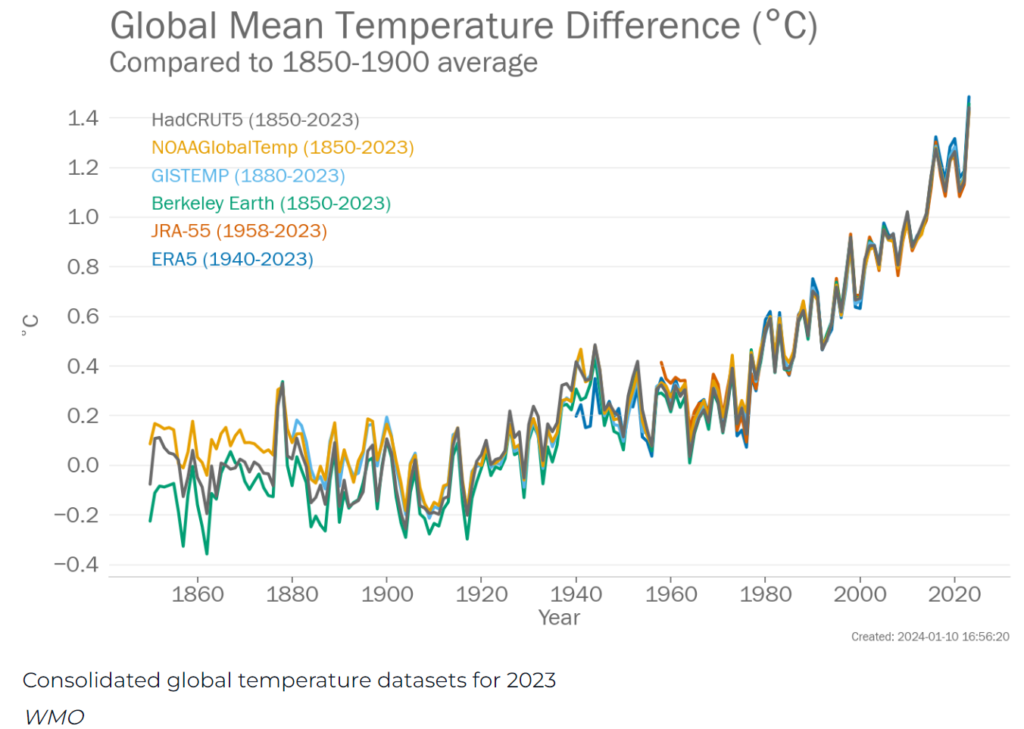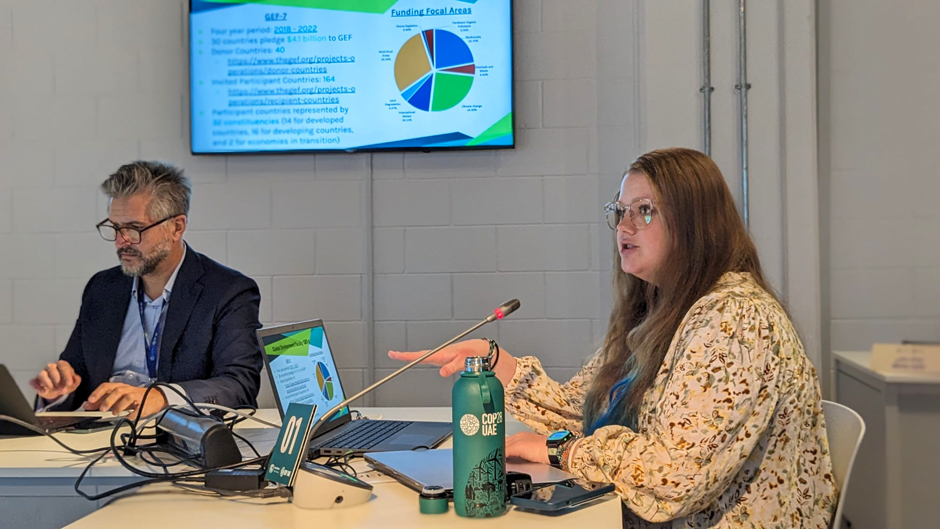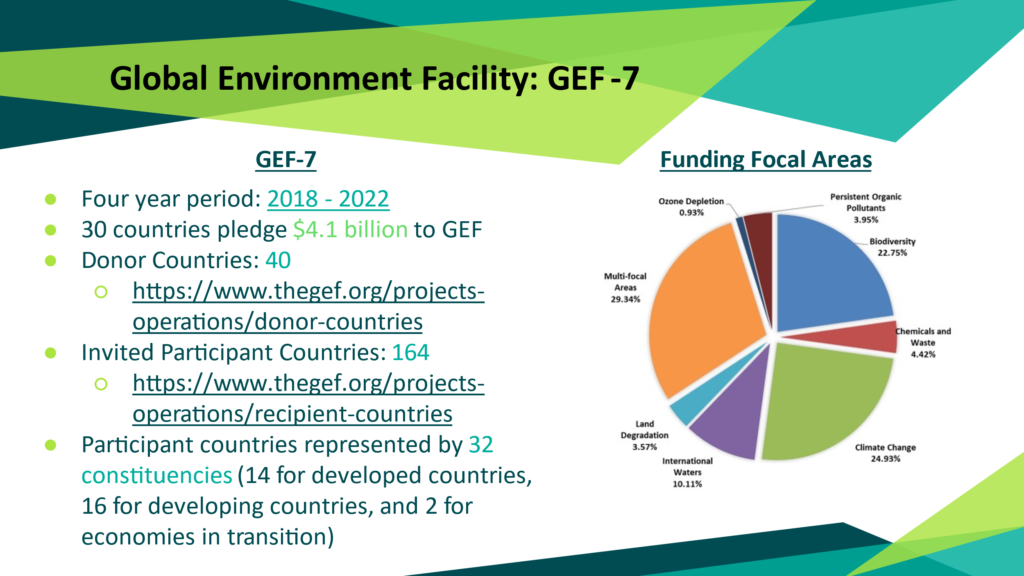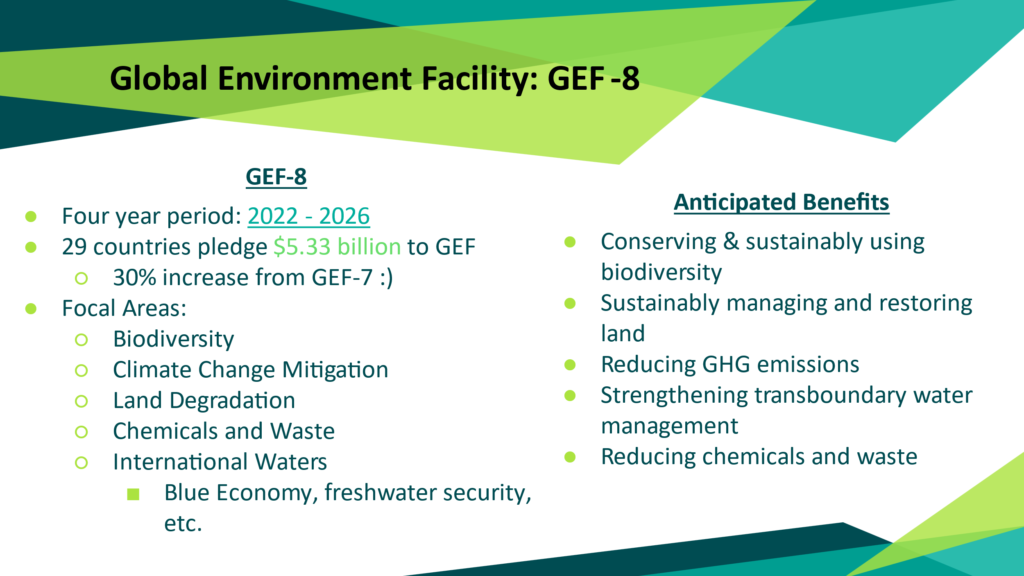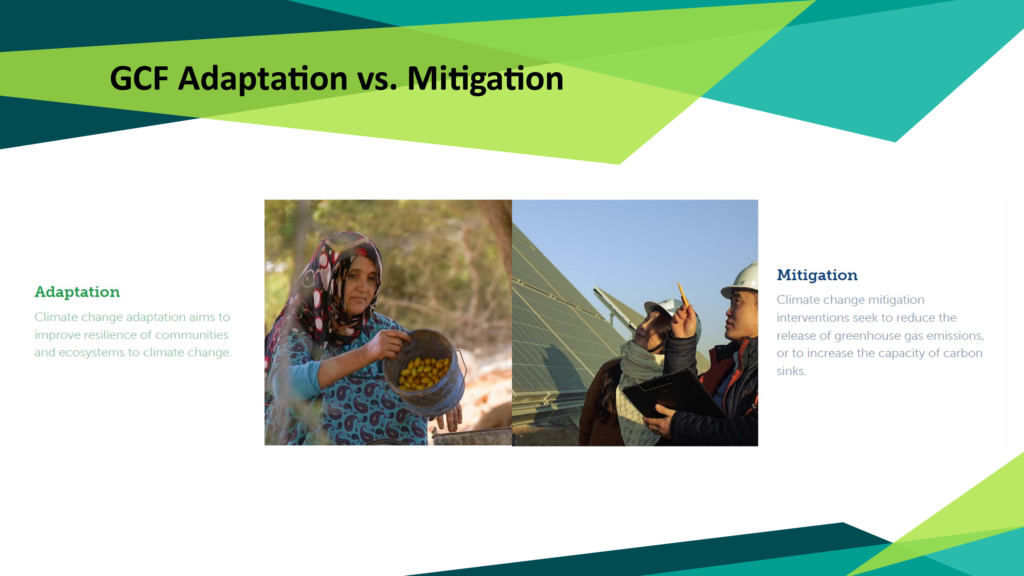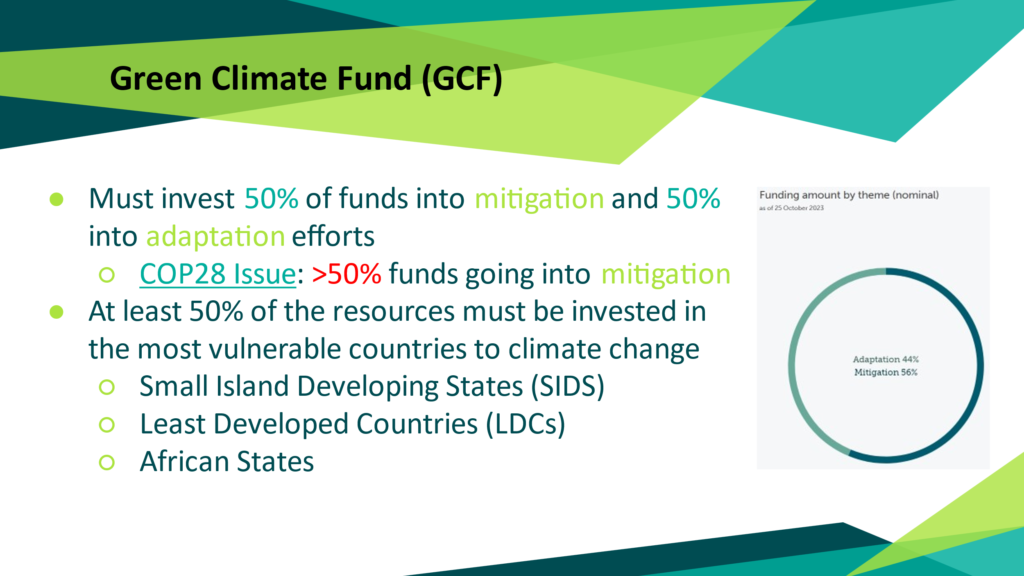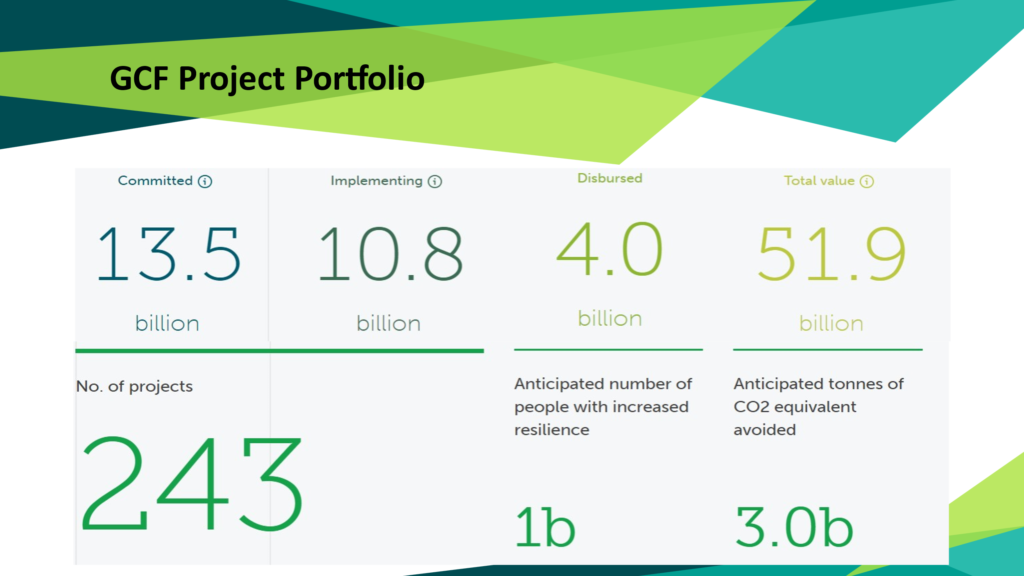 Nearly 200 of the world’s nations gathered here in Dubai for the United Nation’s annual climate conference, COP28, and for at least a couple of days near the conclusion of our meetings, over half of those countries attempted to have the summit’s final guiding agreement include wording that called for the “phase out” of fossil fuels. In the end, half a day after its scheduled conclusion, what I will call The Dubai Document (which you can find here) and something that the UN calls its Global Stocktake (GST), failed to include any reference of either a “phase out” or a “phase down” of fossil fuels.
Nearly 200 of the world’s nations gathered here in Dubai for the United Nation’s annual climate conference, COP28, and for at least a couple of days near the conclusion of our meetings, over half of those countries attempted to have the summit’s final guiding agreement include wording that called for the “phase out” of fossil fuels. In the end, half a day after its scheduled conclusion, what I will call The Dubai Document (which you can find here) and something that the UN calls its Global Stocktake (GST), failed to include any reference of either a “phase out” or a “phase down” of fossil fuels.
It will not come as a surprise to many that while some of COP28’s leadership will surely tout the document as an important, or even remarkable, step towards solving our climate crisis while patting themselves on the back, I would bill it and these two weeks as a “COP OUT” (pun intended) defined by wealthy oil producing nations (including our host country, the UAE) and corporations protecting their cash flow, profits, lifestyle, and most certainly the products and pollution that’s causing earth to warm in increasingly alarming ways.
That final document includes vague, nearly nonsensical, wording suggesting that the world’s nations should be “transitioning away from fossil fuels in energy systems, in a just, orderly and equitable manner accelerating action in this critical decade, so as to achieve net zero by 2050 in keeping with the science.” Such wording allows oil rich countries to continue to actually, unbelievably, increase fossil fuel production for the foreseeable future.
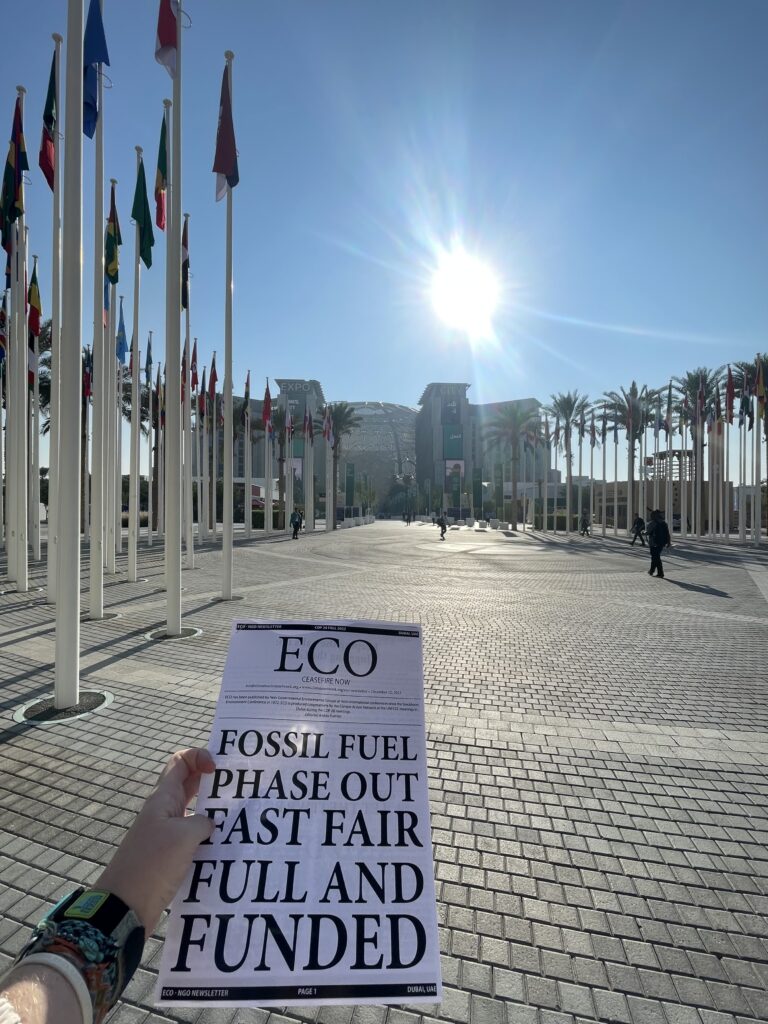 The good news, and it should be seen as such especially coming from such a controversial summit as has taken place here in Dubai, is that the phrase “fossil fuels” actually made it into the final document. That’s a first as even many oil producing nations have publicly acknowledged that the days of fossil fuel production are limited and will, one day, largely come to an end. Now that the adults leading these talks have had the courage to actually say that fossil fuels are causing our climate crisis and include that phrase in the conference’s culminating document, the proverbial pollution genie has been released from its lamp. That is, in itself, historic and should provide us something to build upon between now and COP29 next year in Azerbaijan.
The good news, and it should be seen as such especially coming from such a controversial summit as has taken place here in Dubai, is that the phrase “fossil fuels” actually made it into the final document. That’s a first as even many oil producing nations have publicly acknowledged that the days of fossil fuel production are limited and will, one day, largely come to an end. Now that the adults leading these talks have had the courage to actually say that fossil fuels are causing our climate crisis and include that phrase in the conference’s culminating document, the proverbial pollution genie has been released from its lamp. That is, in itself, historic and should provide us something to build upon between now and COP29 next year in Azerbaijan.
The GST Agreement saw the world’s nations also agreeing to include a number of voluntary steps towards sustainability, including tripling global capacity of renewable energy by 2030 (something China and the USA had touted in a separate agreement a few weeks ago), doubling the rate of energy savings from efficiency steps, and “rapidly phasing down unabated coal.” The final document also again includes the 1.5°C degree aspirational goal found in 2015’s Paris Agreement and delineates that reaching that goal would require 43% of emissions cut by 2030 and a 60% reduction by 2035 versus 2019 emission levels.
I will share that the evolution of the final 2023 GST document has been a case study for me in how the UN’s climate negotiations take place as the attending nations strive for the UN’s desired consensus in the final wording. The proposed language released last Friday, for example, remarkably marked the first time in the three-decade long history of these negotiations that mention of eliminating fossil fuels by agreeing to phase out their use was ever put into writing and that rightfully garnered optimism amongst delegates that substantive progress just might be made at COP28. If mankind is to have a chance at limiting the worst aspects of our climate crisis, then it is essential that society begin an orderly transition away from using the fossil fuels that produce about 75% of earth’s warming.
“The Republic of the Marshall Islands did not come here to sign our death warrant.”
John Silk, Minister of Natural Resources and Commerce
Republic of the Marshall Island
The pushback to last Friday’s proposed “phase out” wording, however, from the Organization of the Petroleum Exporting Countries (OPEC) and OPEC+ nations such as Saudi Arabia and Russia, along with India and China, was predictable, immediate, and fierce. In response to yet another new draft, one of many in recent weeks, that appeared late Monday with dramatically weakened wording called for “reducing consumption and production of fossil fuels.” That revised wording was quickly deemed unacceptable and thus other drafts then followed on Tuesday and through the early morning hours here on Wednesday as negotiators attempted to do the impossible: appease everyone.
As they did last year in Egypt, Saudi Arabia and Russia led the OPEC (Algeria, Angola, Congo, Equatorial Guinea, Gabon, Iran, Iraq, Kuwait, Libya, Nigeria, Saudi Arabia, United Arab Emirates [COP28’s Host Nation], and Venezuela) and OPEC+ (Azerbaijan [next year’s COP29 recently announced host], Bahrain, Brunei, Kazakhstan, Malaysia, Mexico, Oman, Russia, South Sudan, and Sudan) oil nations in refusing to allow the final Conference’s guiding agreement to include any mention of either “phasing down” or “out” fossil fuels.
Instead, the oil cartels insisted that the summit focus on emissions from burning fossil fuels rather than the fuels themselves. Those nations and many of the oil companies that harvest, distribute, and sell fossil fuels prefer to tout unproven fantastical ideas such as “carbon capture” technology that experts predict could be impossible to scale to sufficient size in time to make a difference. Carbon capture is increasingly touted at these COP sessions by the fossil fuel producers and polluters like a magical climate change solution, yet experts note that in addition to being ridiculously unproven, it has all sorts of logistical issues including questions over where “captured” carbon would be stored, where and how it would be transported, and how to pay for the truly exorbitant cost of such technology. The United Nations, it should be noted, has explained that a small amount of carbon capture technology may be useful to achieving its goal of net zero polluting emissions, such as within the concrete industry, but that this technology will not replace the need to dramatically reduce fossil fuel use and replace it with sustainable energy options such as hydrogen, solar, and wind.
And yet, as I have noted in earlier posts, it should surprise no one that those whose countries and companies profit from oil and gas would fight the growing, now very public global focus to “phase down” or “out” the polluting products they broker. Their resistance is, of course, logical but the open display that unfolded here in Dubai including the grotesque number of oil industry lobbyists that were so vividly everywhere illustrates both their fear and what’s at stake not only for them but more importantly for the future of our environment and humanity. Here’s a picture of who the OPEC and OPEC+ nations are:
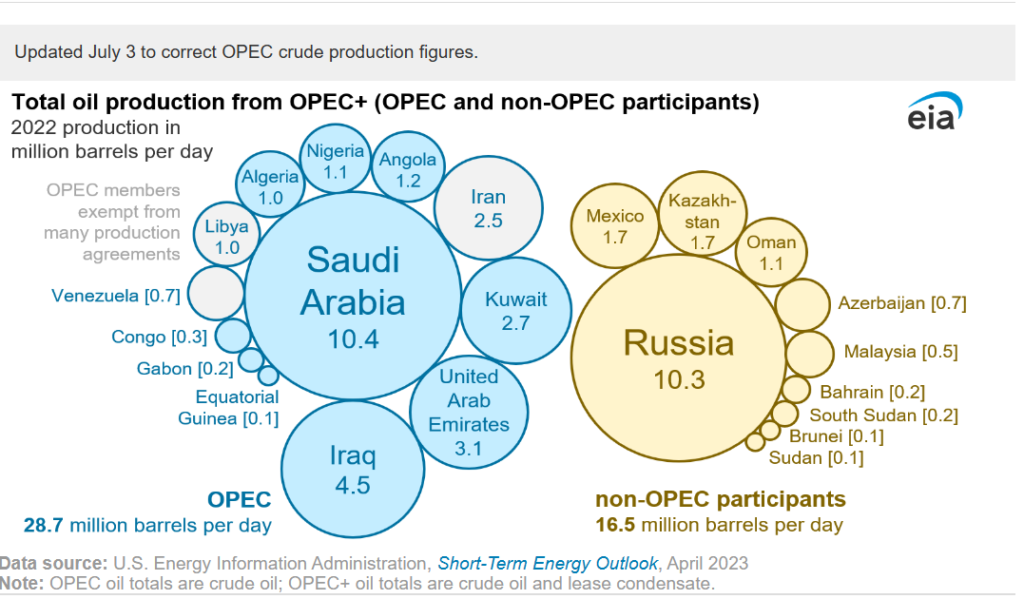
Following last Friday’s draft COP28 Agreement, the one including wording related to the “phase out” of fossil fuels, it’s interesting to note that a memo dated December 6th from OPEC’s head, Secretary General Haitham Al Ghais, surfaced and was quite the topic of conversation here in Dubai (yet another example of how this year’s meetings “evolved”). That memo told OPEC members that “the undue and disproportionate pressure against fossil fuels may reach a tipping point with irreversible consequences” and advised them to fiercely fight any wording related to “phasing down” or “out” fossil fuel. News of that memo immediately led to global outrage but also, perhaps for the first time in such a public way, makes clear that oil nations are the focus of those of us that are serious about bringing an end to the use of their polluting products and transitioning to sustainable energy solutions before it’s too late.
And while they are neither a member of OPEC or OPEC+, China was also again forceful at these meetings. A proposed statement calling for global emissions to peak by 2025 was, for example, removed from the final document after China objected to such wording, a curious position since some believe that country’s own emissions might peak by then.
Another issue the world faces is that while ultimately over half of the countries here at COP28 (EU, the United States, Canada, Small Island Developing nations, and many others) openly supported the “phasing down” or “phasing out” of fossil fuel use in some fashion there are other countries such as certain African and the OPEC/OPEC+ nations that adamantly feel it is their right to profit from their natural resources, most certainly including harvesting fossil fuels despite the pollution it produces. During a closed-door session here in Dubai, for example, the developing nation of Bolivia explained that they “could not see space for targeting any sources of energy, that any phaseout or down or demand for action as a country is unacceptable to us.”
And despite the open disregard for the damage that the pollution many nations are producing, there were a growing number of nations in attendance for whom our climate crisis is literally going to be life or death. For those nations it’s clear that the climate crisis not only requires massive economic investment to try to become resilient by adapting to what’s happening to them, but that sea level rise realistically places their very survival and futures at dire risk.
“We weren’t in the room when this decision was gaveled. And that is shocking to us.”
Tina Stege, Climate Envoy
The Marshall Islands
“It seems that you gaveled the decisions, and the small island developing states were not in the room. We were working hard to coordinate the 39 small island developing states that are disproportionally affected by climate change and so we were delayed in coming here.”
Anne Rasmussen, Lead Negotiator
Alliance of Small Island States (AOSIS)
“As a Pacific Islander on the frontline of the climate crisis, I’m gutted by the outcome of COP28 and was shocked to see the GST text adopted so quickly. The final outcome falls short of what’s needed in terms of fossil fuel phase out and finance.”
Shiva Gounden, Delegation Head
Pacific at Greenpeace Australia Pacific
In my earlier post from Dubai, The Room Where It Happens, I noted the importance of being at these meetings, of being engaged in the debate, negotiations, and decisions. That post was fortuitous when we consider the comments that small island nations made immediately after today’s announcement of a final vote and the resulting GST document. I’ve written about these nations in the past, places that face similar futures to many regions in South Florida where I live, such as Miami Beach, the Everglades and Florida Keys, places that are literally at the risk of extinction from rising sea levels caused by the damage fossil fuels pollution is doing to our atmosphere and oceans.
The sense in Dubai, frankly, is that the seemingly lightning fast vote on the final wording that was approved this morning may have somehow been manipulated so as to exclude some of the nations such as the 39 Small Island members from debating the final wording. Some of the nations that have spent these past two weeks calling for the “phase out” of fossil fuels, appear to have been still discussing the most recent wording, a draft that was released just a couple of hours before today’s plenary began and thus were not even in attendance during what became the final vote. If that’s the case, if they were consciously excluded or their attendance somehow prevented, it would mark a sinister end to COP28.
Those nations are now arguing that noticeably absent from today’s plenary was the typical debate over the most recent proposed draft wording that precedes a vote. The Small Island nations believe that there was a rush to end the Conference and approve the most recent wording without public debate ever taking place nor they even being in the room when the gavel brought COP28 to an end. If their full participation was, in fact, manipulated or limited in any manner by the UAE’s COP leadership then that betrayal will serve as the darkest oil spot of many black marks and sketch events to define the meetings here in Dubai at what has been perhaps the most controversial COP in the three decades these meetings have been taking place. It is most certainly a story worth watching evolve.
And as I write this post, I am in the process of traveling the 7,500 miles from Dubai back to my home in Miami, Florida, a trip that will take about 19 hours of flight time, a four-hour layover in London, and a couple of rideshares to and from the various airports. All in all, it will take me a full day to get home and upon my arrival I must immediately turn my focus to studying for this semester’s law school final exams that will dominate my schedule over the next week.

Honestly, I am both exhausted and exhilarated. And yet, as I sit here and study legal concepts and cases on the plane my mind is full of thoughts from the UAE desert, of what I saw, heard, and learned at COP28. And the image that I can’t keep out of my mind is of an hourglass filled with sand, perhaps sand from the very desert that I visited a few days ago, and thinking that it represents the time that’s running out for the nations of the world to fix our climate crisis by eliminating fossil fuel use before it’s too late.

